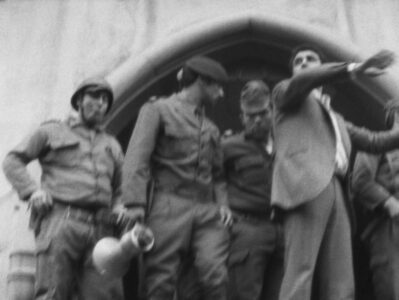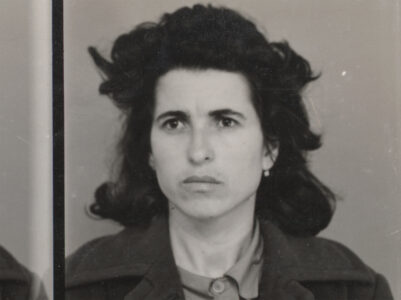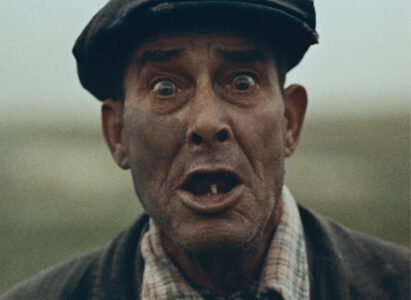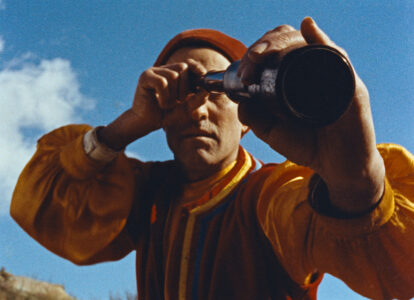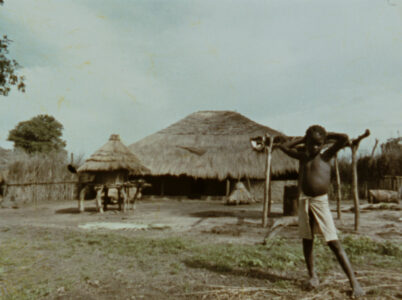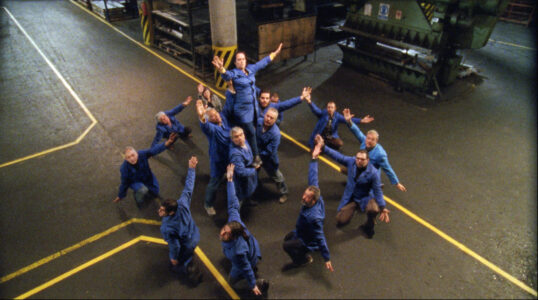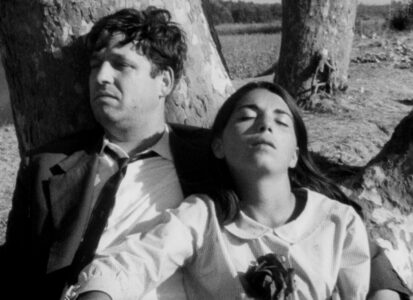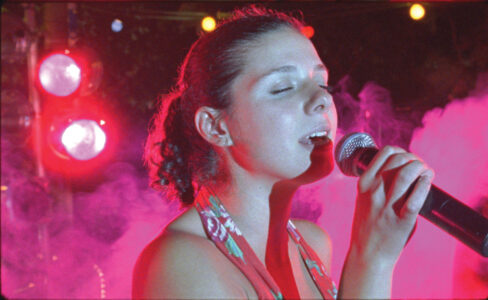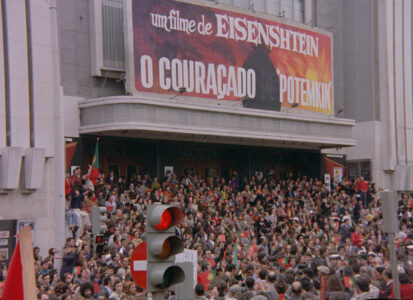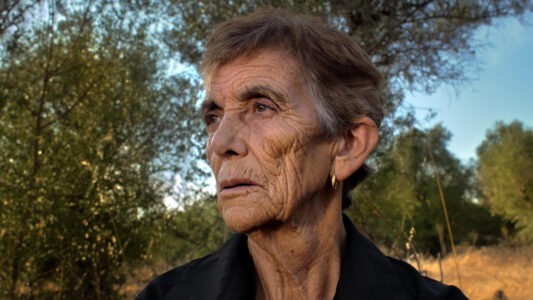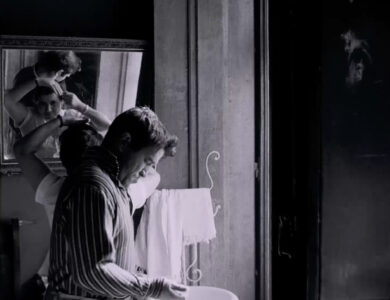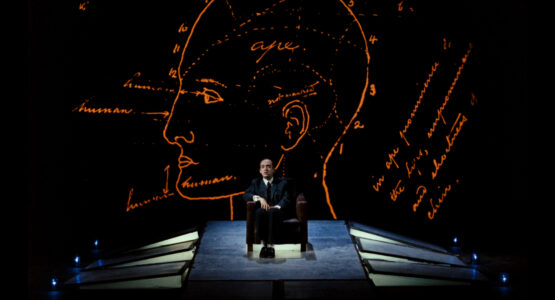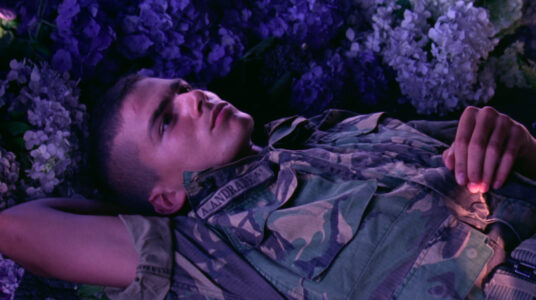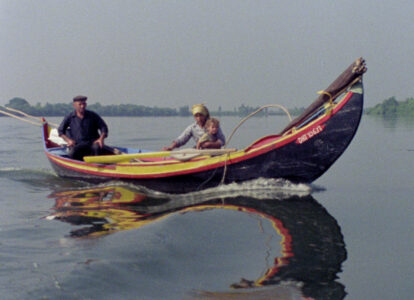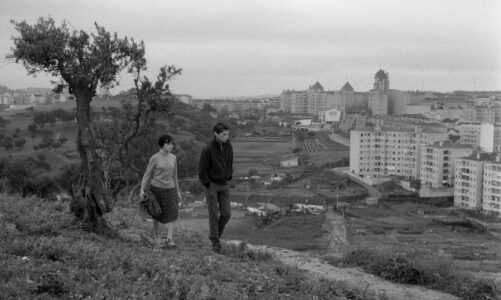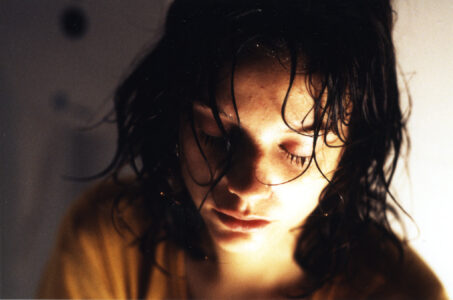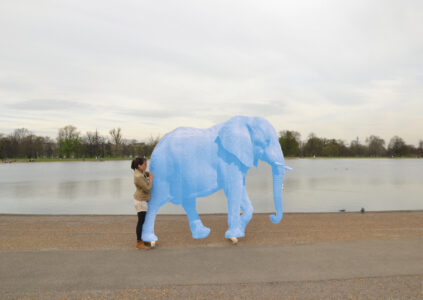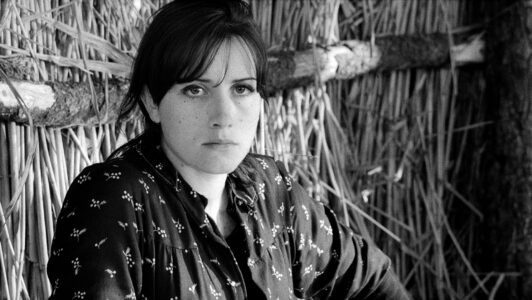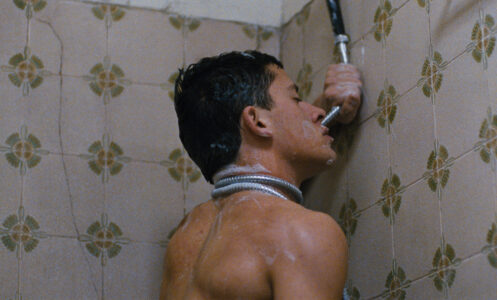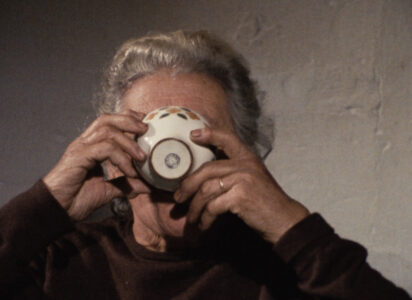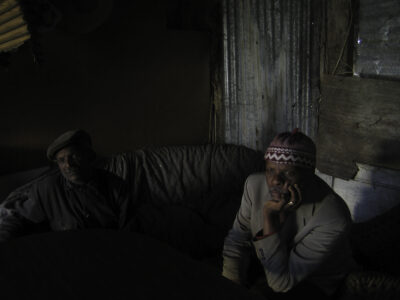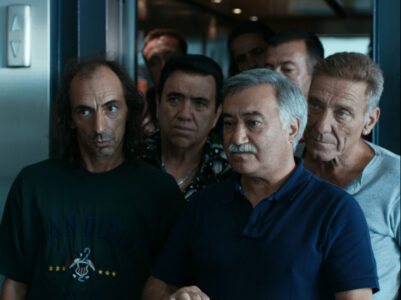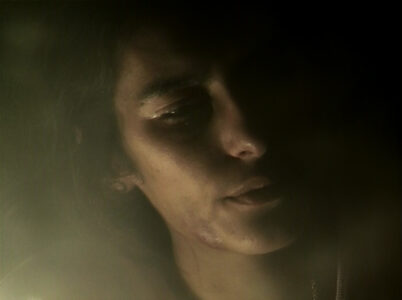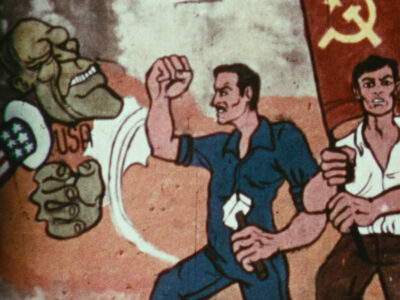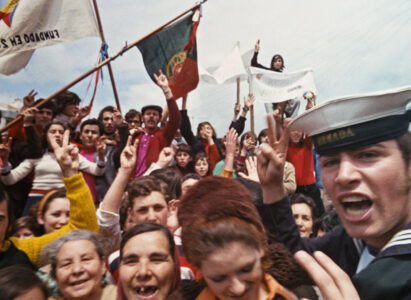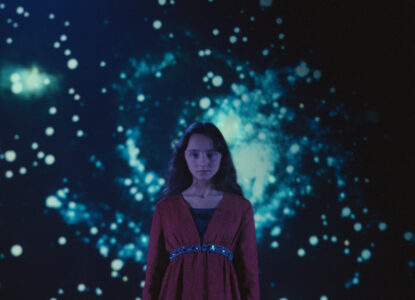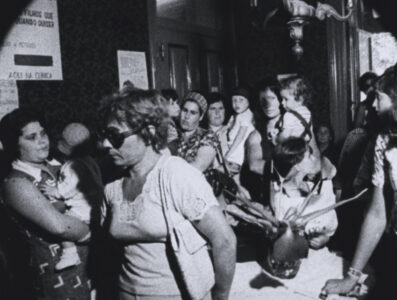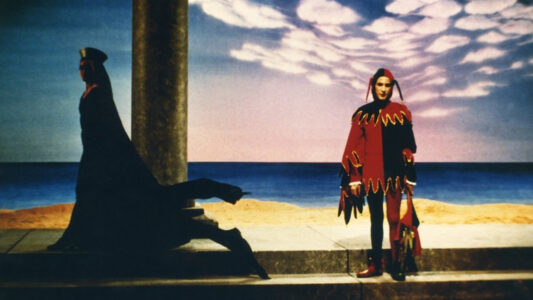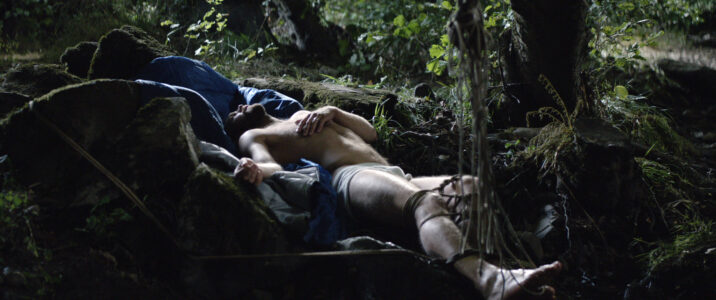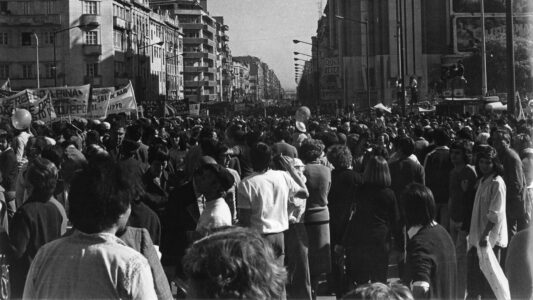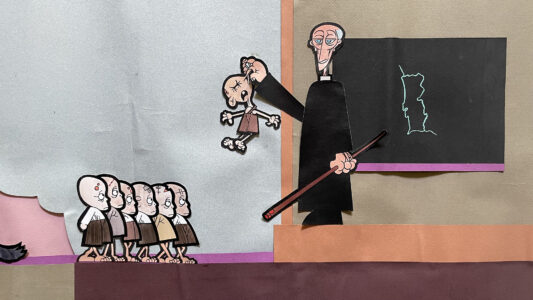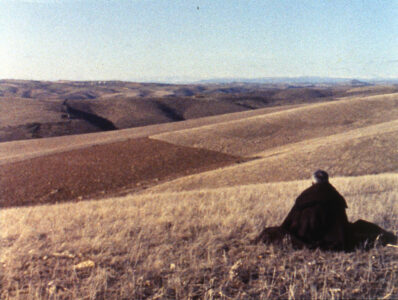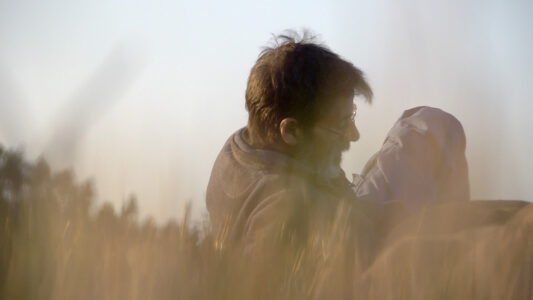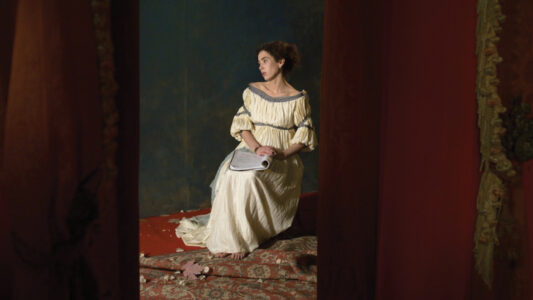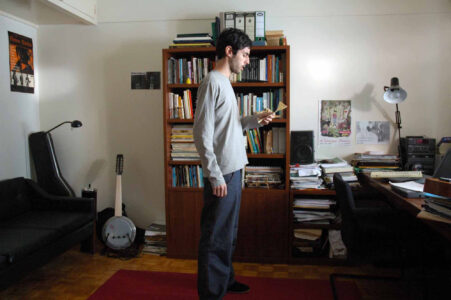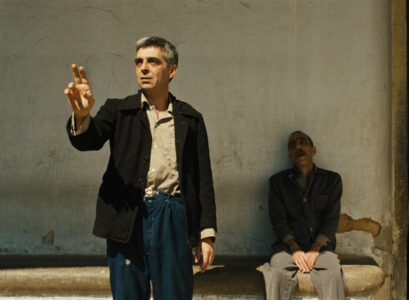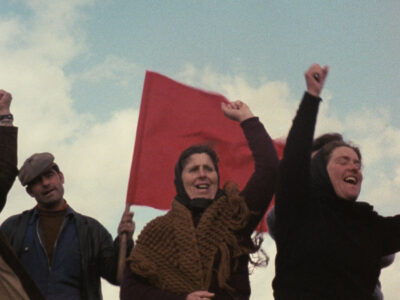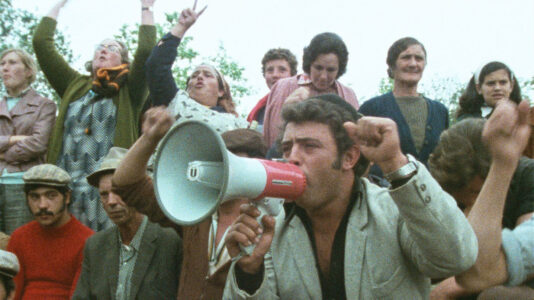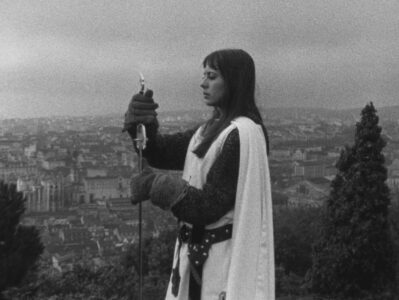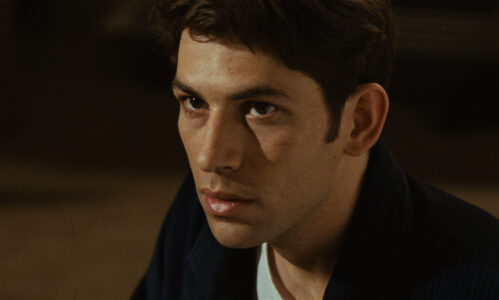Important: By downloading images you are agreeing to the following permissions: Images are provided exclusively to the press, and only for purposes of publicity of The Museum of Modern Art's and MoMA PS1's current and upcoming exhibitions, programs, and news announcements. Permission to use images is granted only to the extent of the Museum's and MoMA PS1's ownership rights relating to those images—the responsibility for any additional permissions remains solely with the party reproducing the images. The images must be accompanied by the credit line and any copyright information as it appears above, and the party reproducing the images must not distort or mutilate the images.
The Ongoing Revolution of Portuguese Cinema
October 17, 2024 – November 19, 2024
The Museum of Modern Art
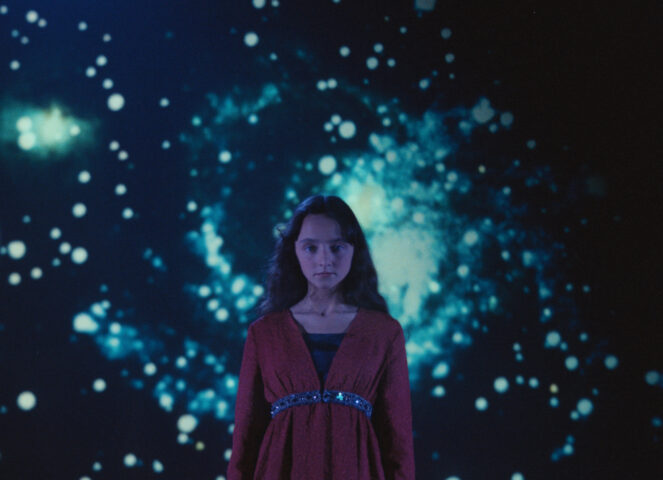
Fifty years ago, the “Carnation Revolution” ended four decades of fascism in Portugal and initiated an experiment that fascinated the Western world: an “Ongoing Revolutionary Process” to bring about a utopian sociopolitical structure. Another revolution was also underway by 1974: a wave of films that, under the weight of censorship, broke distinctions in how reality and fiction were framed onscreen. Before the notion of “hybrid cinema” gained traction worldwide, Portuguese cinema was using tools from documentary filmmaking to create fiction (and vice-versa) and offer a new realm for the senses; like a revolutionary process, it threaded a link between daily lives and the political confluences affecting their course.
Under the influence of Manoel de Oliveira—who was continually questioning the lines between life and its representation—the “Cinema Novo” generation expanded upon the international “new wave” innovations of the 1960s amid a suffocating social environment at home and a brutal colonial war in Africa. After the revolution, the movement focused on working-class communities with renewed dignity, and attracted foreign filmmakers, such as Robert Kramer and Thomas Harlan, to capture Portugal’s feverish political atmosphere.
The independent spirit of Portuguese cinema would continue to break new ground with João César Monteiro’s fable-inspired works, as well as documentaries by António Reis and Margarida Cordeiro, Manuela Serra, and António Campos, which redefined the art of the real, and in turn influenced filmmakers like João Pedro Rodrigues, Pedro Costa, and Miguel Gomes. This series brings light to an aesthetic tradition wherein making films—and watching them—becomes a political, existential gesture and creates a space of resistance to homogeneous, oppressive forces that constrict us in our lives—a pursuit, in a word, of freedom.
View up-to-date screening schedule here.
Organized by Francisco Valente, Curatorial Assistant, Department of Film. Thanks to Rui Machado, Tiago Baptista, Joana de Sousa, Arquivo Nacional de Imagens em Movimento, Cinemateca Portuguesa – Museu do Cinema, and José Manuel Costa.
![]()
Film at MoMA is made possible by CHANEL.
Additional support is provided by the Annual Film Fund. Leadership support for the Annual Film Fund is provided by Debra and Leon D. Black, with major funding from The Contemporary Arts Council of The Museum of Modern Art, The International Council of The Museum of Modern Art, Jo Carole and Ronald S. Lauder, the Association of Independent Commercial Producers (AICP), and The Young Patrons Council of The Museum of Modern Art.
Images
April 25, 3 p.m. at Largo do Carmo (25 de Abril, 3 da Tarde no Largo do Carmo). 1974. Directed by Manuel António Pires. Courtesy Cinemateca Portuguesa – Museu do Cinema
The Hunt (A Caça). 1962. Portugal. Directed by Manoel de Oliveira. Courtesy Cinemateca Portuguesa – Museu do Cinema
Rite of Spring (Acto da Primavera). 1962. Portugal. Directed by Manoel de Oliveira. Courtesy Cinemateca Portuguesa – Museu do Cinema
Acto dos Feitos da Guiné. 1980. Portugal. Directed by Fernando Matos Silva. Courtesy Cinemateca Portuguesa – Museu do Cinema
The Invention of Love (A Invenção do Amor). 1965. Portugal. Directed by António Campos. Courtesy Cinemateca Portuguesa – Museu do Cinema
Our Beloved Month of August (Aquele Querido Mês de Agosto). 2008. Portugal, France. Directed by Miguel Gomes. Courtesy O Som e a Fúria
The Guns and the People (As Armas e o Povo). 1975. Portugal. Directed by Colectivo de Trabalhadores da Actividade Cinematográfica (Manuel Costa e Silva, António da Cunha Telles, Acácio de Almeida, António de Macedo, José de Sá Caetano, António Escudeiro, Henrique Espírito Santo, José Fonseca e Costa, Luís Galvão Teles, Eduardo Geada, Fernando Lopes, Fernando Matos Silva, João Moedas Miguel, João César Monteiro, Glauber Rocha, Elso Roque, Alberto Seixas Santos, Arturo Semedo, João Matos Silva, António-Pedro Vasconcelos). Courtesy Cinemateca Portuguesa – Museu do Cinema
Barbs, Wastelands (Farpões Baldios). 2017. Portugal. Directed by Marta Mateus. Courtesy Portugal Film
Belarmino. 1964. Portugal. Directed by Fernando Lopes. Courtesy Cinemateca Portuguesa – Museu do Cinema
The Metamorphosis of Birds (Metamorfose dos Pássaros). 2020. Portugal. Directed by Catarina Vasconcelos. Courtesy The Cinema Guild
People of Vieira Beach (Gente da Praia de Vieira). 1964. Portugal. Directed by António Campos. Courtesy Cinemateca Portuguesa – Museu do Cinema
The Green Years (Os Verdes Anos). 1963. Portugal. Directed by Paulo Rocha. Courtesy Cinemateca Portuguesa – Museu do Cinema
Metaphor or Sadness Inside Out (Metáfora ou A Tristeza Virada do Avesso). 2013. Portugal. Directed by Catarina Vasconcelos. Courtesy Catarina Vasconcelos
Change of Life (Mudar de Vida). 1964. Portugal. Directed by Paulo Rocha. Courtesy Cinemateca Portuguesa – Museu do Cinema
O Fantasma. 2000. Portugal. Directed by João Pedro Rodrigues. Courtesy Cinemateca Portuguesa – Museu do Cinema
The Movement of Things (O Movimento das Coisas). 1985. Portugal. Directed by Manuela Serra. Courtesy Cinemateca Portuguesa – Museu do Cinema
Our Man (O Nosso Homem). 2010. Portugal. Directed by Pedro Costa. Courtesy Optec Cinema / Pedro Costa
In Vanda’s Room (No Quarto da Vanda). 2000. Portugal. Directed by Pedro Costa. Courtesy Optec Cinema / Pedro Costa
Revolution (Revolução). 1975. Portugal. Directed by Ana Hatherly. Courtesy Cinemateca Portuguesa – Museu do Cinema
Scenes from the Class Struggle in Portugal. 1977. Portugal. Directed by Robert Kramer. Courtesy Cinemateca Portuguesa – Museu do Cinema
Clínica Popular Comunal da Cova da Piedade. 1975. Portugal. Directed by Margarida Gil. Courtesy Cinemateca Portuguesa – Museu do Cinema
The Jester (O Bobo). 1987. Portugal. Directed by José Álvaro Morais. Courtesy Cinemateca Portuguesa – Museu do Cinema
The Ornithologist (O Ornitólogo). 2016. Portugal, France, Brazil. Directed by João Pedro Rodrigues. Courtesy Strand Releasing
The Revolution Hunter (A Caça Revoluções). 2014. Portugal. Directed by Margarida Rêgo. Courtesy Portugal Film
Time of Darkness (A Noite Saiu à Rua). 1988. Directed by Abi Feijó. Courtesy Agência da Curta Metragem
Trás-os-Montes. 1976. Portugal. Directed by António Reis, Margarida Cordeiro. Courtesy Cinemateca Portuguesa – Museu do Cinema
What Now? Remind Me (E Agora? Lembra-me). 2015. Directed by Joaquim Pinto. Courtesy The Cinema Guild
A Woman’s Revenge (A Vingança de uma Mulher). 2012. Directed by Rita Azevedo Gomes. Courtesy Basilisco Filmes
Recollections of the Yellow House (Recordações da Casa Amarela). 1989. Portugal. Directed by João César Monteiro. Courtesy The Cinema Guild
What Shall I Do With This Sword? (Que Farei Eu com Esta Espada?). 1975. Portugal. Directed by João César Monteiro. Courtesy Cinemateca Portuguesa – Museu do Cinema
